So, continuing the discussion of how primary sources can feed our stories …
I forgot to mention that spelling and punctuation were not standardized until sometime in the nineteenth century. This can be very jarring for those of us trained to be picky about these things! Just keep in mind as you write that misspellings and run-on sentences are no indication of the writer’s level of education.
This week I’m drawing from two diaries and a letter, penned by two different men, who wrote about their experience in the Battle of Kings Mountain. I chose them for their relevance to my recently completed novella, Defending Truth, a historical romance set during the aftermath of this battle, and whose characters come from opposing sides of the conflict. Micah, the young man in my story, is a survivor of the battle and escaped loyalist prisoner. For those not familiar with the term, “loyalist” means an American colonist who, yes, remained loyal to the British cause during the Revolution, commonly referred to as a Tory. (In fact, whether people use the term Tory or loyalist can be a tip-off to what side their sympathies are on, or whose POV you’re in, in a story.) Being the sort of person who finds it fascinating to look at things from unusual angles, I’ve found this viewpoint interesting. These diaries proved invaluable in giving me a glimpse into their lives and perspectives. Let’s take a look!
The first excerpt is from the journal of Alexander Chesney. His account of the battle and immediately after is fairly short.
“I had been wounded by the first fire but was so much occupied that I scarcely felt it until the action was over. We passed the night on the spot where we surrendered amidst the dead and groans of the dying who had not surgical aid, or water to quench their thirst; Early next morning we marched at a rapid pace towards Gilbert’s town between double lines of mounted Americans; the officers in the rear and obliged to carry two muskets each which was my fate although wounded and stripped of my shoes and silver buckles in an inclement seasons without covering or provisions until Monday night when an ear of Indian corn was served to each; at Gilbert’s town a mock trial was held and 24 sentenced to death 10 of whom suffered before the approach of Tarlton’s force obliged them to move towards the Yadkin cutting and striking us by the road in a savage manner Col Cleveland then offered to enlarge me on condition that I would teach his Regiment for one month the exercise practiced by Col Ferguson which I refused, although he swore I should suffer death for it … luckily his threat was not put to the test as I had the good fortune to make my escape on evening ….”
Okay … first, if you’re not familiar with this battle, Kings Mountain was where some very angry “over the mountain” men caught up with British officer Patrick Ferguson and his band of loyalist troops that he’d collected from across the Carolinas. Ferguson had threatened the settlements west of the Blue Ridge mountains, hence the term “overmountain,” with all sorts of dire things if they didn’t stay out of the conflict between the British and the rebellious colonists. It was bad enough that the settlements were considered illegal by the Crown, but the men who lived there kept sneaking across to harass the British troops, which were pushing their way into the South Carolina backcountry, east of the mountains.
The conflict between those who considered their defense of their homes a justified and righteous one, and those who thought it immoral and dangerous to oppose the British Crown, became very fierce indeed, and some rather ungentlemanly behavior took place.
So, in Chesney’s journal, we see the conditions right after the battle—having to spend the night on the spot, among the dead and dying. (Shudder!) Then being marched away, and deprived of shoes or decent food in cold, wet weather. And see what he says about the mock trial, and ten of them being put to death (we know from other accounts that there were nine, and they were hanged) before being rushed away again. See the phrase, “cutting and striking us by the road in a savage manner”? Hmm, those overmountain men were still plenty furious. And then Chesney refused the offer of his situation to be bettered (food, clothing, shelter) if he’d teach the “rebel” forces the military tactics the loyalists had been drilled in by Ferguson, who was famous for his discipline. We know, again by other sources, that Chesney escaped sometime in the third week after the battle.
The diary of Anthony Allaire covers this span of time in a bit more detail, but I’ll exerpt only a short section:
Saturday, [October] 7th. About two o’clock in the afternoon twenty-five hundred Rebels, under the command of Brig.-Gen. Williams, and ten Colonels, attacked us. Maj. Ferguson had eight hundred men. The action continued an hour and five minutes; but their numbers enabled them to surround us. The North Carolina regiment seeing this, and numbers being out of ammunition, gave way, which naturally threw the rest of the militia into confusion. Our poor little detachment, which consisted of only seventy men when we marched to the field of action, were all killed and wounded but twenty; and those brave fellows were soon crowded as close as possible by the militia. Capt. DePeyster, on whom the command devolved, saw it impossible to form six men together; thought it necessary to surrender to save the lives of the brave men who were left. We lost in this action, Maj. Ferguson, of the Seventy-first regiment, a man much attached to his King and country, well informed in the art of war; he was brave and humane, and an agreeable companion; in short, he was universally esteemed in the army, and I have every reason to regret his unhappy fate. We had eighteen men killed on the spot; … Of the militia, one hundred were killed, including officers; wounded, ninety; taken prisoners, about six hundred. Our baggage, all taken, of course. Rebels lost Brig.-Gen. Williams, one hundred and thirty-five, including officers, killed; wounded, equal to ours.
Sunday, 8th. They thought it necessary to move us sixteen miles, to one Waldron’s plantation where they halted.
….
Thursay, 12th. Those villains divided our baggage, although they had promised on their word we should have it all.
Friday, 13th. Moved six miles to Bickerstaff’s plantation. In the evening their liberality extended so far as to send five old shirts to nine of us, as a change of linen—other things in like proportion.
Saturday, 14th. Twelve field officers were chosen to try the militia prisoners—particularly those who had the most influence in the country. They condemed thirty—in the evening they began to execute Lieut.-Col. Mills, Capt. Wilson, Capt. Chitwood, and six others, who unfortunately fell a sacrifice to their infamous mock jury. Mills, Wilson, and Chitwood died like Romans— the others were reprieved.
Sunday, 15th. Moved at five o’clock in the morning. Marched all day through the rain—a very disagreeable road. We got to Catawba and forded it at Island Ford, about ten o’clock at night. Our march was thirty-two miles. All the men were worn out with fatigue and fasting— the prisoners having no bread or meat for two days before. We officers were allowed to go to Col. McDowell’s, where we lodged comfortably. About one hundred prisoners made their escape on this march.
….
Saturday, 21st. Several Tory women brought us butter, milk, honey, and many other necessaries of life. Moved at ten o’clock in the morning, and marched fifteen miles to Mr. Headpeth’s plantation, a great Tory, who is at present with Lord Cornwallis. We lodged at Mr. Edward Clinton’s who is likewise with Lord Cornwallis.
Sunday, 22nd. Moved at ten o’clock in the morning. Obtained liberty to go forward with Col. Shelby to Salem, a town inhabited by Moravians. Rode ten miles, and forded Yadkin river at Shallow Ford. Proceeded on fourteen miles farther to Salem. Went to meeting in the evening; highly entertained with the decency of those people, and with their music. Salem contains about twenty homes, and a place of worship. The people of this town are all mechanics; those of the other two Moravian settlements are all farmers, and all stanch friends to Government.
Monday, 23rd. Lay at Salem in the evening. Two Continental officers slept at the tavern, on their way to join their army. One Mr. Simons, a Lieutenant of Col. Washington’s dragoons, was exceeding polite, pitied our misfortune in falling into the hands of their militia.
Notice in the last bit that not all Continentals (the “rebels” … that would be “our side”) were hateful to the Tories, and vice versa. The militia—the unpaid volunteer force—were considered undisciplined and unstable on both sides of the fence. The abusive treatment of the prisoners is not given much detail until we read Allaire’s later account of the time:
The party was kept marching two days without any kind of provisions. The officers’ baggage, on the third day’s march, was all divided among the Rebel officers.
Shortly after we were marched to Bickerstaff’s settlement, where we arrived on the thirteenth.
On the fourteenth, a court martial, composed of twelve field officers, was held for the trial of the militia prisoners; … those brave, but unfortunate Loyalists, who all, with their last breath and blood, held the Rebels and their cause as infamous and base, and as they were turning off, extolled their King and the British Government.
On the morning of the fifteenth, Col. Campbell had intelligence that Col. TARLETON was approaching him, when he gave orders to his men, that should Col. TARLETON come up with them, they were immediately to fire on Capt. DePEYSTER and his officers, who were in the front, and then a second volley on the men. [In other words—shoot the prisoners first!]
During this day’s march the men were obliged to give thirty-five Continental dollars for a single ear of Indian corn, and forty for a drink of water, they not being allowed to drink when fording a river; in short, the whole of the Rebels’ conduct from the surrender of the party into their hands is incredible to relate.
Several of the militia that were worn out with fatigue, and not being able to keep up, were cut down, and trodden to death in the mire.
After the party arrived at Moravian Town, in North Carolina, we officers were ordered in different houses. Dr. JOHNSON (who lived with me) and myself were turned out of our bed at an unseasonable hour of the night, and threatened with immediate death if we did not make room for some of Campbell’s officers;
Dr. JOHNSON was, after this, knocked down, and treated in the basest manner, for endeavoring to dress a man whom they had cut on the march.
The Rebel officers would often go in amongst the prisoners, draw their swords, cut down and wound those whom their wicked and savage minds prompted.
This is a specimen of Rebel lenity-you may report it without the least equivocation, for upon the word and honor of a gentleman, this description is not equal to their barbarity. This kind of treatment made our time pass away very disagreeably.
Can you see it? The politics, the drama, the element of ordinary men dealing with extraordinary stresses? And the surprising thing to me, from a historical standpoint, was that this is an angle of the Revolution we rarely get to see. We get glimpses of the brutality of both sides in other conflicts—Les Misérables comes to mind—but rarely are we offered more than a one-sided look at our own nation’s history. Don’t worry, I’m not going to suggest that there wasn’t a good case for declaring our independence from Britain! But we find that the issues were far more complex—and had more in common with present-day issues—than we might realize.
For me, and for the story I just finished writing, reading these accounts helped humanize those portrayed as the enemy in my school-years’ education. As a writer, it’s necessary to put ourselves in the shoes (or in this case, in the bare feet) of those whose viewpoint we’ve never before considered and maybe would have strongly disagreed with. We may still disagree with the viewpoint and politics, but I believe our writing will be richer for it.
Exercise:
- Can you think of ways that primary sources might strengthen your personal research and writing?
- Has there ever been a time you were surprised by what you read in the first-hand account from some event?
My thanks to Lisa Jillani of the Charlotte Museum of History, Charlotte, NC, for the William Alexander journal I used last week.
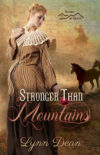
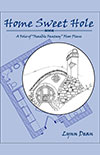

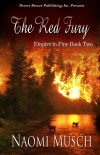
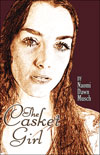
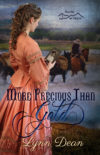
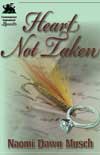

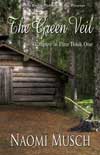
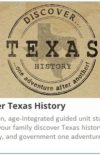
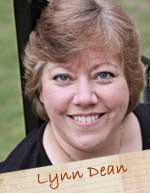


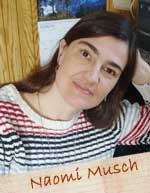


Speak Your Mind
You must be logged in to post a comment.